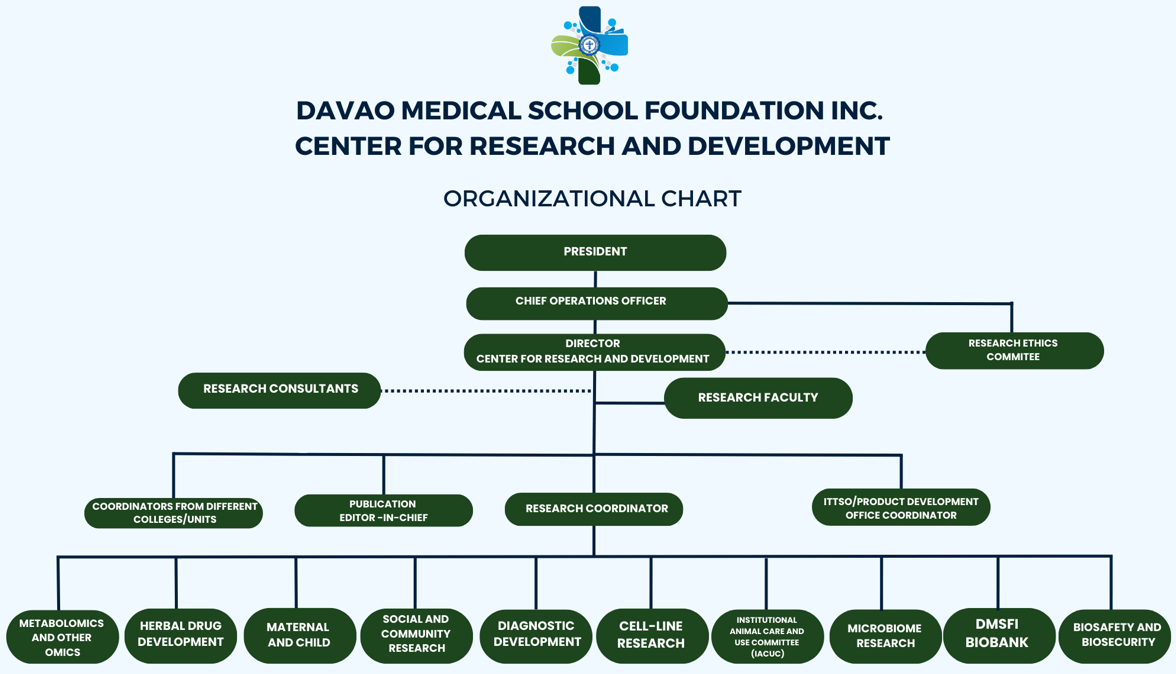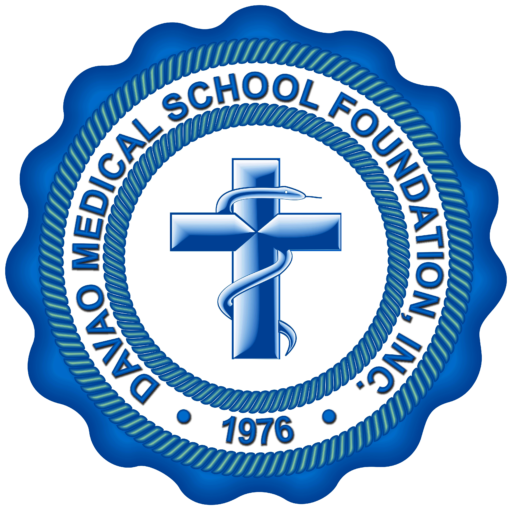


About
The mandate of the Research and Publication Office (RPO) are (1) to produce research studies for the institution to help realize its vision/mission, (2) to assist and capacitate students, faculty and staff in the conduct of their researches, (3) to regulate the conduct of researches by the institution, and (4) to help disseminate research outputs through publication and translate research outputs for the benefit of the community.
Research
Student Research Studies
The medical students conduct in-vitro studies, animal studies, clinical trials, and community-based health researches to comply with their academic requirements in the departments of Physiology, Pharmacology and Community Medicine. The community medicine students implement participatory health research and community health action plan on a prioritized health problem based on their community diagnosis activity. The Bachelor of Science (BS) in Biology students conduct their undergraduate theses with topics on basic biological sciences that may have health consequences. The dental students conduct studies on dental caries, dental hygiene, and dental materials while the nursing and midwifery students produce research studies that delve into persisting and emerging diseases, nursing and midwifery education, and issues concerning their related learning experiences (RLE) in the hospital setting.
The Masters in Health Professions Education (MHPEd) conduct studies to enhance teaching and learning from the Masters in Community Health (MCH) and Masters in Participatory Development (MPD) undertake studies on maternal and child health, reproductive health, environment, dental health, participatory governance, peace-building, and other health and development issues.
Faculty and Staff Research Studies
To support these research endeavors, the institution established linkages with various local and international higher education institutions (HEIs), health research institutions, and funding agencies [e.g. Philippine Council for Health Research and Development (PCHRD), the Commission on Higher Education (CHED), Department of Health (DOH), Local Government Units (LGUs), the European Commission, Ford Foundation, United States Agency for International Development (USAID), United Nations Fund for Population Activities (UNFPA), United Nations Children’s Fund (UNICEF), Helen Keller International, The Rockefeller Foundation, International Fund for Agricultural Development (IFAD) and Canadian International Development Agency (CIDA)].
Publication
Research findings are disseminated to policy makers, funding bodies, health care providers, researchers, teachers, students and the public through various research dissemination strategies such as national and local research conferences, community assemblies and publication in local and international scientific journals, and in the DMSFI Research Journal, DMSFI Compendium of Abstracts, and the Health Sciences Mindanao (HSM) Journal. These dissemination pathways provide a venue for translation of research findings into better knowledge and skills and for crafting policies and actions for better human and environmental development.
However, the faculty and students need guidance in doing a standardized or uniform process in the conceptualization of topic, preparation of the proposal and in the acquisition of funds for support. Moreover, they are required to produce research studies that follow ethical guidelines in research. A set of research guidelines must therefore be made available to a) provide direction in development of research proposals of scientific merit that conform with ethical standards; b) prevent duplication of research projects; c) motivate researchers to secure funds for research; and d) enhance efficiency of dissemination and utilization of research findings.
The DMSFI Research Manual was originally put together by the now defunct Institute of Graduate Studies and Research (IGSR) to enhance the system of coordination between and among the different units of the institution to produce technically and ethically sound researches. This version of the Research Manual was improved from the 2017-2018 DMSFI Research Manual and republished by the DMSFI Research and Publication Office. This 2021 version supersedes all other versions of the DMSFI Research Manual.
Research Council
Duties and Responsibilities of the Research Council
- Advise the RPO Director on research policies, guidelines, strategies, and innovations to help promote the research culture of the DMSFI;
- Attend meetings at the RPO Office for planning and discussion of research information;
- Disseminate information to their respective units regarding the research agenda, research policies and guidelines, capacity building activities, research dissemination, utilization of research outputs and other related activities;
- Monitor the research capacity building activities to ensure the active participation of faculty and staff in research activities and to encourage mentoring of budding researchers;
- Evaluate capsule proposals if these are aligned with the school, national and regional health and educational agenda;
- Monitor the status of all research studies conducted by their respective units to ensure that proposals are screened by the Research Ethics Committee for technical and ethical soundness and that findings are disseminated to potential users in a timely and appropriate manner; and
- Participate in research activities of the school such as research for a seminar-workshops, research agenda setting, thesis defense, and other related activities as participant, judge in poster and oral research presentation, speaker, or member of thesis defense panel.
Organization Chart

Research Ethics Committee (REC)
Biosafety/Biosecurity Committee
Innovation & Technology Support Office (ITSO)
Research Center



The Research Center is the Clinical Epidemiology and Science Research unit of the College of Medicine of the Davao Medical School Foundation, Inc.
This houses a modern research laboratory that supports the conduct of basic scientific research, preclinical and clinical trials, the major goal of which is the development of potential herbal plants into therapeutic preparations that can be utilized by the community. Ultimately, the research center also collaborates with other institutions, government agencies, NGOs, and the private sector towards academic and scientific pursuits to benefit the community.




